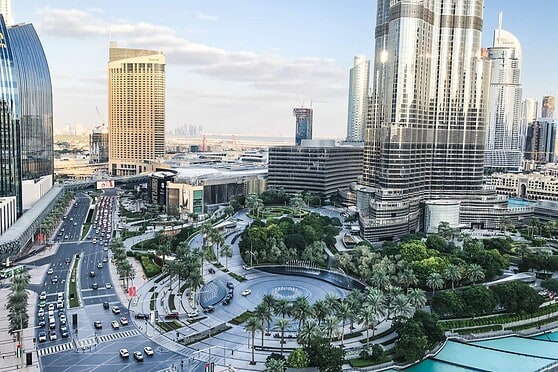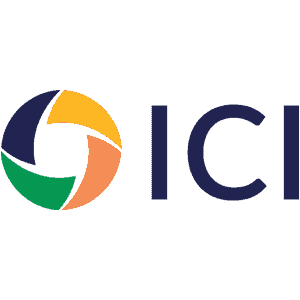Understanding Dubai’s Public Healthcare System and Private Insurance Alternatives
Dubai is one of the world’s most popular destinations for expatriates. Nearly 90% of Dubai’s population is foreign-born, creating a global community of professionals, families, and long-term residents who expect high-quality medical care.
If you plan to move to Dubai, you will need to have a compliant health insurance policy in place before you arrive. The Dubai Health Authority requires all residents to be insured, and expats must understand how coverage works, what it includes, and when supplemental international insurance is necessary.
Find the Best International Medical Insurance
- Compare multiple quotes from top insurers
- Get expert advice at no additional cost
- Find the right plan for your needs and budget
Best Health Insurance Plans for Expatriates in Dubai
Two providers consistently offer the strongest and most compliant global medical plans for foreigners living in Dubai: Cigna Global and William Russell. Both meet Dubai Health Authority (DHA) requirements and offer worldwide coverage options.
Cigna Global Insurance Plan
Cigna’s Healthguard plan is specifically designed for individuals and families living in Dubai and the Northern Emirates. The Dubai Health Authority and the Insurance Authority fully approve it.
Cigna Global Insurance Plan
- Flexible plans tailored to your needs and budget
- 1.5M+ providers in 200+ countries
- 24/7 multilingual customer support
William Russell Health Insurance Plan
William Russell offers four plan tiers that provide international coverage, flexible add-ons, and excellent specialist and cancer benefits. Their plans are also compliant with local regulations in Dubai.
William Russell Health Insurance
- Worldwide coverage with access to private hospitals and trusted medical networks.
- Comprehensive benefits, covering inpatient care, outpatient treatment, mental health, and emergency evacuation.
- Flexible plan levels that let expats choose the coverage and budget that fit their lifestyle.
Overview of Dubai’s Public Healthcare System
Dubai’s healthcare system is one of the most advanced in the Middle East. It features modern hospitals, highly trained providers, and strong regulatory oversight from several health authorities, including:
- The Ministry of Health and Prevention
- The Dubai Health Authority (DHA)
- The Emirates Health Authority
Dubai has an estimated 181 doctors per 100,000 residents, and the city attracts medical tourists from around the world for complex surgeries, fertility treatments, and cosmetic procedures.
The Dubai Health Authority (DHA) oversees both public and private healthcare and operates four major public hospitals: Dubai, Rashid, Latifa, and Hatta. Expats can access these facilities, but most opt for private clinics for greater convenience and access to specialist care.
What to Consider When Purchasing Private Insurance
Mandatory Health Insurance Requirements
Since 2014, all residents of Dubai have been required to have health insurance. Employers must provide private health insurance for all expatriate employees.
Key points to know:
- Employers are required to cover employees, but not dependents.
- Plans for low-income workers are part of the Essential Benefits Plan (EBP).
- The EBP also covers children, domestic workers, and non-working residents.
- Employers cannot reduce salaries to qualify workers for low-cost EBP plans.
Employees covered under EBP typically pay a 20 percent co-pay per visit, capped at 1,000 dirhams per year.
Connect with a Global Benefits Advisor
- Experts in sourcing and implementing global insurance plans
- We’ve built steadfast partnerships with carriers worldwide
- Licensed in Health, Life, Accident, and more
Do Expats Qualify for the Public Healthcare System?
Any expat legally employed in Dubai is eligible for employer-provided health insurance. Those earning lower salaries receive EBP coverage, while higher-income workers may receive more comprehensive plans.
How to Apply for a DHA Health Card
A DHA health card is required to receive care at public hospitals. You can apply online or visit a medical center.
Documents required:
- Emirates ID
- Passport and residence visa
- Two passport photos
- Tenancy contract
- Completed application form
Cost: 320 dirhams for adults and 120 dirhams for children under ten.
Pros and Cons of Dubai’s Local Health Insurance
Benefits
- High-quality care at public and private facilities
- Modern hospitals with advanced technology
- Multilingual staff and easy access to specialists
Drawbacks
- Employer-provided plans may offer minimal coverage
- Dental and vision are usually not included
- Many expats purchase supplemental private insurance for global coverage and better benefits.
International plans offer broader networks, access to premium hospitals, and coverage for treatment in your home country.
How to Access Medical Care in Dubai
Routine Doctor Visits
Routine visits are straightforward. Present your insurance card or DHA health card, complete a short form, and pay any required co-pay. Some treatments may require pre-approval, which clinics can assist with arranging.
Many Dubai residents schedule appointments directly with specialists rather than using a general practitioner.
How to Find a Doctor in Dubai
You can search for providers through:
Some specialists travel to the UAE for specific procedures. These listings are available through the Ministry of Health.
Prescription Medication in Dubai
Pharmacies are widely available, and many operate 24 hours a day. Certain medications, such as sleeping pills and antidepressants, are highly restricted. You may need a letter from your primary care physician to renew or obtain these prescriptions.
Visitors may bring three months’ worth of prescription medication. Residents may bring up to one year. All medication must be in its original packaging, accompanied by a doctor’s letter for verification.
International Hospitals in Dubai for Expats and Foreigners
Below are leading hospitals known for quality and international patient services:
Always check with your insurer before receiving treatment, particularly for inpatient procedures.
Find the Best International Medical Insurance
- Compare multiple quotes from top insurers
- Get expert advice at no additional cost
- Find the right plan for your needs and budget
Joe Cronin, President of ICI, is a leading expert in international health, life, and travel insurance. An MBA and founder of multiple global businesses, he helps expatriates and travelers access trusted, comprehensive insurance solutions worldwide.
View
Full Bio






